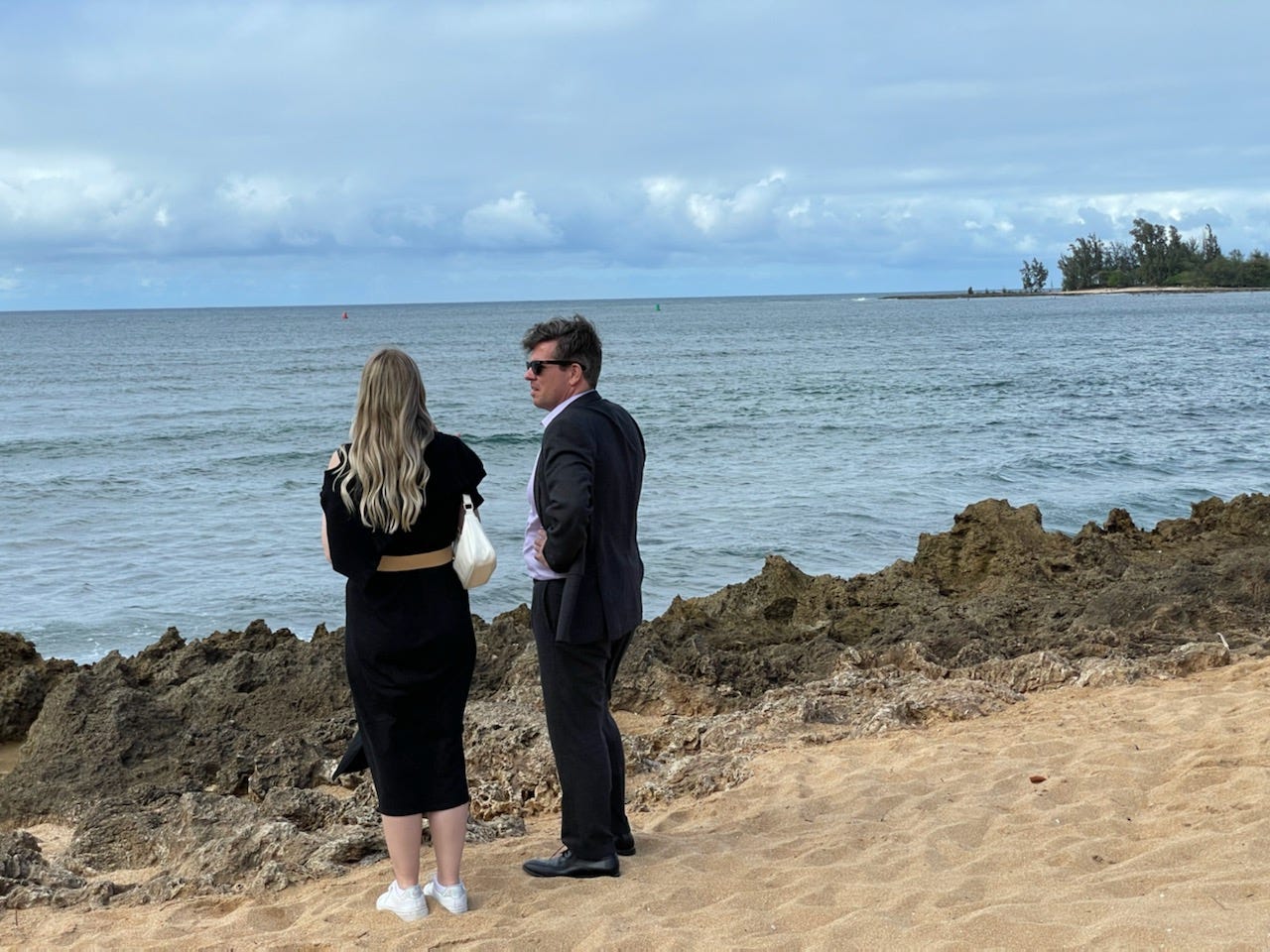Gracing the LMP stage this week is Brenton Burgess!
Brenton is a creative. He gesticulates madly when excited. He roams the world on a vampiric schedule. He takes great pride in his hair and his ever-present suits. Oh, and he is also a writer-director.
Like many of the guests on the podcast, I like to think that I met Brenton exactly when I needed to. We connected at the beginning of 2021 through a short film called The Bad Man. He needed an editor, I needed to creatively edit; it was zeal at first Zoom.
I am naturally “creative” in that I have an innate need to put authentic, creative work into the world. I love making art in a variety of mediums; I love telling stories; I love seeing others’ reactions to my creations. I appreciate both the tangibility and permanence of handmade things – such as the planners that I create for myself each month with stamps or any of my sister’s crafts – as well as the unique and impermanent experiences the immersive mediums of filmmaking, music, and theatre devise. Creativity is an integral part of me. It is something I cannot live without. But I have only recently decided that I consider myself a creative person.
There are strong, positive correlations between my capacity to create in an environment, the appreciation of my creative efforts, and my level of satisfaction in the situations in which I create. When these connections are strong, I feel a sense of creative confidence that allows me to express myself freely and authentically. When the connections are weak or severed, I am discouraged to create and am often not able to create at all.
The time period when these connections held strongest in me was in preschool and elementary school, where many assignments were crafts, many electives were artistic, and many extracurriculars were creative play. I would venture to believe that almost all people feel most creatively free as children, but it wasn’t evident to me that other people were as sensitive to the dwindling creativity levels each progressing school year as was I.
One of the ways that my sensitivity to dwindling creativity manifested as was dwindling grades in my strongest subjects. I have always loved writing. And I have always considered myself a good writer. However, my scholastic writing assessments did not always reflect my writing ability. In elementary school, I was in the Young Writers program several years, and I scored perfect and near-perfect marks on the writing tests that prompted students to create a narrative. I looked forward to these creative writing assessments and projects as opportunities for me to tell stories, and I was always warm and fuzzy to know that my stories were well received.
Things changed after the fourth grade – the first year of the standardized non-fiction writing test. Opportunities for creative writing within the curriculum disappeared and were replaced with 5-paragraph, argumentative essay writing lessons. My writing assessment scores fell, and, year after year, my ability to complete the tests in the allotted time waned as the prompts shifted towards increasingly tense and political subjects that I felt I understood nothing about. By the time I applied for college and took the SAT, the ACT, and a slew of AP tests, my standardized writing assessment scores averaged around 50%. Writing was no longer fun.
All the while, I knew that I was a good writer. My Language Arts teachers enjoyed reading my work. My lexile level was high. I got several awards in English. I never received less than 100% on the grammar sections of the SAT/ACT, and I always finished these sections with plenty of time to spare. I was told I was a good writer. Yet I was told my writing wasn’t good enough.
These mixed messages about my creative ability were confusing, and they extended to all of my creative pursuits. I loved music, but I lost interest when I stopped being challenged and never progressed past All-County. I loved dance, but I didn’t have enough classical training or technique to be on the dance team. I loved theatre and desperately wanted to learn about it, but the theatre department at my school fell apart, and I was rejected from Governor’s School because they only had enough room for people who already had experience.1 It seemed like every branch of creativity that I reached for snapped at my touch. And so, at the end of 12 years of public schooling, I no longer believed that I was a creative person.
Meeting Brenton was one of the inciting incidents that led me to reclaim my creative nature. Working with him over the course of a year allowed me to regard Brenton as a friend instead of just a collaborator, which is an accolade only an unfortunate number of the people with whom I work with share. Moreover, Brenton’s patience and trust in my creative process, his vocal support of my work, and his consistent encouragement and belief in me as a person have helped me to grow more attuned to myself and to reawaken my passion for authentic creation. For all of these things – but mostly for his willingness to buy me cheesecake – my fondness for Brenton, and all of his creative energy, holds strong and is very much appreciated.
You can try to find Brenton online, but he tends to hide from the Internet. However, you can read more about his production company, Time Fray Productions, here.
Select referenced people and materials:
Notes from the Underground by Fyodor Dostoyevsky
Gustav Klimt, Austrian Symbolist painter
Harold Prince, American theatre producer & director
All music for the podcast lovingly created by Ian T. Jones.
This statement might sound obvious, but it was not my understanding of the program when I applied. Applying in the Theatre discipline and not in English is, unfortunately, one of my biggest regrets.
















Share this post